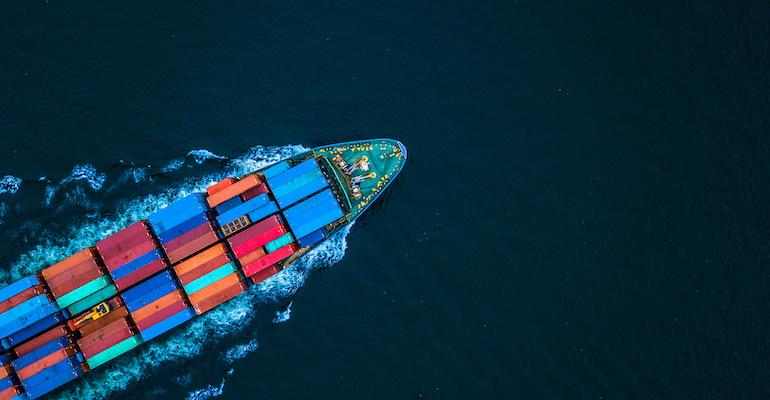However, some shippers and forwarders believe an electronic payment system favours the shipping lines, who can use the system to make late payment charges, adding another minor revenue stream to their income.
Container Trade Statistics calculates that around 173m containers are shipped every year with paper-based documentation that if laid out end-to-end would stretch for 3-4 km, with these reams of paper couriered around the globe.
Related: Container lines commit to 100% electronic bill of lading adoption by 2030
Liji Nowal, founder and CEO at online documentation enabler ODeX, said: “The sheer amount of data that flows between parties that are not a part of the original contract, means that carriers do not recognise any party that is not on its bill of lading.”
As a result, even settling a $10 invoice could delay a shipment by days, adding to the cost through the accrual of detention and demurrage charges, according to Nowal.
Related: Red Sea crisis rerouting adding up to $300,000 in fuel costs
In the US clearance of funds in payment for the receipt of goods can take three days to clear, with another day to clear the documentation, that means that four days of free storage time have already been used.
According to Nowal these delays can see up to 50% of all boxes moved rack up charges and the cost of courier deliveries on top of the D&D charges means that an estimated 50% of the world’s loaded freight containers will have additional charges of around $25-30/box.
ODeX, which stands for online document exchange, offers electronic invoicing, secure payments and delivery orders. But Nowal says the company wants to remain an electronic enabler and will never move into the freight forwarding space.
According to Nowal a global survey by the company, which was initially founded to aid Indian exporters in 2015, showed that between 50% and 75% of executives had experienced logistics delays as a result of documentation bottlenecks.
The company uses Amazon Web Services to handle its transactions which offers a high level of security for users of its services, with the company claiming that documents in its systems are only visible to those that require to see particular papers.
ODeX now operates in 11 countries across the Middle East, Africa, Southeast Asia, India and most recently added the US, in the autumn of last year, to its service list.
Shippers are divided on the issue with one saying that they have experienced few issues with electronic or paper documentation, another saying that negotiable bills of lading can cause delays as it incurs a lot of courier movements as shippers, normally of bulk cargoes, selling goods during transportation, and that means a change of destination.
New consignees in this scenario will need to get goods released and that means getting hold of three original bills of lading, this can take time and will increase the costs.
A third shipper, a freight forwarder, pointed out that electronic documentation benefitted the shipping lines most. “I have to pay Hapag, for example, within three days of the vessel sailing. If I fail to pay via an electronic payment system they can issue late payment penalties.”
This can be as much as $50 for the first three days after documents are due, and another $50 for the subsequent seven-day period and so on.
With a hard copy-based system lines will not release a bill of lading until the invoice is paid. A telex will release paperwork, freight is prepaid, and the consignee – who gets no credit – will be invoiced and has to pay this bill within a week. The forwarder then arranges haulage, with no late payments.
“There is no credit and no late payment charges in this system,” said the forwarder.
Reference: https://www.seatrade-maritime.com/containers/documentation-delays-push-industry-costs-3bn

